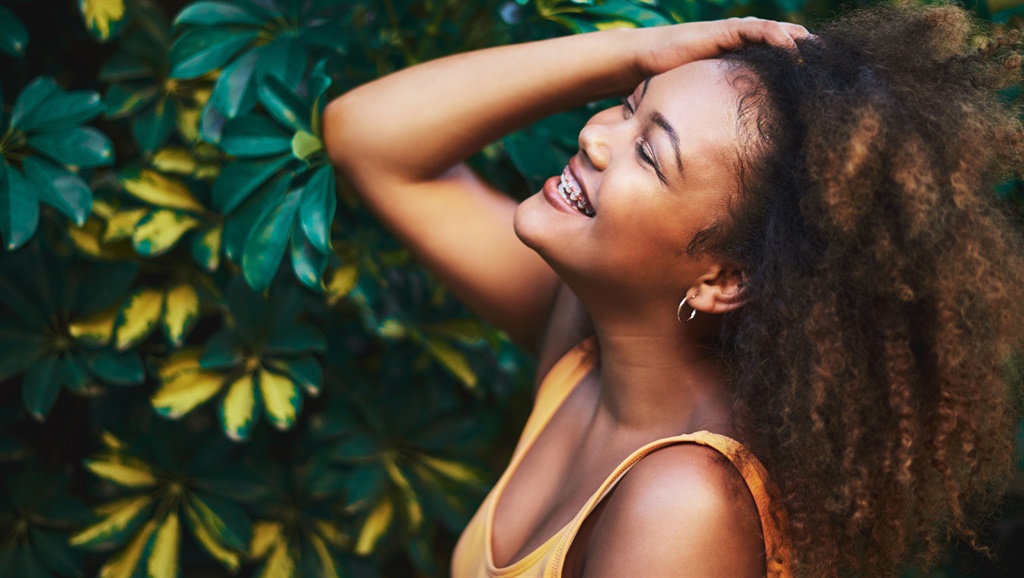
In the past few years there has been an increased amount of information about how to effectively take care of kinky to curly hair, thanks to the natural hair movement.
Similarly shops and online stores have increasingly been stocking products for the said natural hair. But, as much as it may seem all is good and well, we often need to ensure that the products branded ‘natural’ or ‘moisturising’ are actually that.
READ MORE: WATCH: How to maintain your curly ‘do
Has anyone else stopped in the middle of the hair care aisle to read all the ingredients at the back of a hair product and not understanding one word except aqua? Yup, that is definitely me.
The outcome of not understanding these terms can result in persistently dry hair, which refuses to grow and has a questionable curl pattern. Why? Because a lot of the time we do not know what we are putting on our hair.
READ MORE: 7 reasons why your hair is not growing
To solve this, I spoke to Sonto Pooe, founder of natural hair and body care brand NativeChild and former cosmetic science and styling student. She gives us a breakdown of what to avoid in hair products and why.
Before we get into the don’ts, let us discuss the dos.
Moisturising hair is one of the absolute basic hair care steps people with particularly curly hair need to employ. And because water leaves the hair and evaporates, locking in the moisture becomes important too.
REAAD MORE: Relaxer sales have dropped almost 20% in SA as women choose natural hair
“Moisturise, moisturise, moisturise. Kinky natural hair is the driest of all hair types, therefore, it needs moisture (water) every day. Get yourself a spritz bottle and spritz with water and seal with an oil of your choice – note that everyone’s hair is different so experiment with different oils to find the best for your hair,” says Sonto.
Experimenting with different products and different methods of moisturising is part of the journey but the need for moisture is unavoidable.
As mentioned above, some products labelled as moisturisers do very little for the moisture of the hair so it is important to use products that will allow for sufficient moisture for your hair.
READ MORE: DIY beauty enthusiast cut off her own hair to create a makeup brush
“If it has natural oils like sheabutter [and] castor oil, which are thicker oils and help to keep hair moisturised,” Sonto suggest you go for it. “What you should avoid are leave ins (leave in products) with mineral oils, as these are drying,” she says.
The key thing to do is to avoid synthetic products such as mineral oils, petroleum-based products, harsh chemicals and many parabens, according to her. And yes, we have reached the technical terms territory so let’s have Sonto break it down for us.
“If it doesn’t say it’s natural, it’s probably not … there are studies that prove that mainstream products can offer hair products benefits but at a cost of one’s health (over a period of time),” says Sonto.
These are the ingredients she suggests we should avoid in hair products:
Parabens
Sonto says parabens are widely used preservatives in the pharmaceutical and cosmetic industry and are needed to keep bacteria, viruses etc. at bay to make the product safe for consumers. But says, industry experts now hold the view that parabens are linked to certain cancers, hence there is a move away to safer alternatives.
Alcohol
According to Sonto, alcohol in cosmetic is used for many different functions including cleansing, disinfecting, controlling pH, as a quick drying function etc. She says alcohols such as the fatty alcohols like cetyl alcohol, stearyl and so on are considered okay to use, but others alcohols are considered harsh or irritating to skin like ethanol, denatured alcohol and benzoyl alcohol.
Sulfate
If you watch any natural hair blogger you are likely to have heard this ingredient plenty of times. Sonto says sulfates have come under the spotlight largely because they have been added to the list of chemicals that are “carcogenic” (cancer forming). She says sulfates are chemicals used as cleansing agents in hair preparations, detergents and household cleaners.
“Though the scientific world is undecided where this is safe or not, I would advise to err on the cautionary side,” says Sonto.
“Some people do actually react to the use of this chemical and find it irritating to skin. We may never find out the full implication of long term use of this group of chemicals yet, but it is always better to be safe than sorry,” she adds.
So with this expert-backed knowledge and more tips from natural hair bloggers, we have the perfect moment to grow healthy fros from now onwards.
If you would like to share what's worked for you or have more questions about your natural hair, chat to use here.




 Publications
Publications
 Partners
Partners














